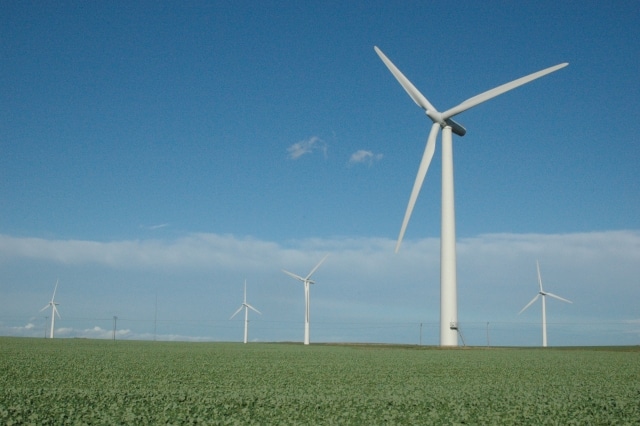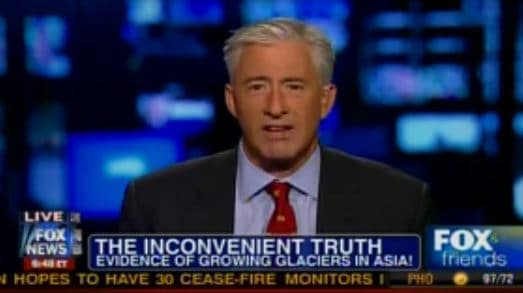By Connor Gibson, crossposted with permission from Greenpeace USA.
A recent flood of Koch-supported think tanks, junk scientists and astroturf groups from inside and outside of Kansas are awaiting the outcome of a bill this week that could stall progress on the growth of clean energy in Kansas.
States around the country, including Texas, Ohio, Missouri and North Carolina are poised to cut back on government support for clean energy jobs using model legislation from the American Legislative Exchange Council. ALEC, which brings companies together with state lawmakers to forge a wish list of corporate state laws behind closed doors, is coordinating this year’s assault on state laws that require a gradual increase of electricity generated by clean energy sources.
ALEC and a hoard of other Koch-funded interests operating under the umbrella of the State Policy Network have hit Kansas legislators hard with junk economic studies, junk science and a junk vision of more polluting energy in Kansas’ future. Koch Industries lobbyist Jonathan Small has added direct pressure on Kansas lawmakers to rollback support for clean energy.
This fossil fuel-funded attack ignores the good that wind energy has done for Kansas, a state known for its bipartisan support for its growing wind industry (see key report by Polsinelli Shughart). The state now has 19 operating wind farms that have brought millions to farmers leasing their land and millions more to the state, county and local levels (NRDC). The American Wind Energy Association says that Kansas wind industry jobs have grown to 13,000 with the help of incentives like the renewable portfolio standard.
Unfortunately, clean energy is not palatable to the billionaire Koch brothers or the influence peddlers they finance. All of the following State Policy Network affiliates (except the Kansas Policy Institute) are directly funded by the Koch brothers, while most of the groups get secretive grants through the Koch-affiliated “Dark Money ATM,” Donors Trust and Donors Capital Fund, which have distributed over $120,000,000 to 100 groups involved in climate denial since 2002.

- $53,500 grant from Donors Trust in 2007
- Koch-funded (Washington Post)
- State Policy Network member
Based out of Suffolk University’s economics department, the Beacon Hill Institute wrote the fundamentally flawed analysis that ALEC is using to scare legislators into thinking that renewable portfolio standards will destroy the economy. In reality, electricity prices do not correlate with state RPS laws (see also Kansas Corporation Commission).
An extensive debunk of the Beacon Hill report was done by Synapse Energy Economics, and similar critiques can be read in the Portland Press Herald and the Maine Morning Sentinel, the Union of Concerned Scientists, the Nature Resources Defense Council and the Washington Post.
The definitive Post article confirms that the Beacon Hill Institute is Koch-funded. This may be through $729,826 in recent grants (2008-2011) from the Charles G. Koch Foundation to Suffolk University. The Kochs tend to send grants to economics departments, causing controversy at Florida State University and other schools over professor hiring processes.
Beacon Hill’s Michael Head co-authored the reports that ALEC and the State Policy Network are using in several states. Mr. Head specializes in STAMP modeling, a form of economic analysis that has been criticized for its limitations and poor assumptions in the case of energy analysis. Michael Head testified before the Kansas legislature on February 14th to promote the flawed findings of his report. Mr. Head testified alongside members of the Heartland Institute, Americans for Prosperity and the Kansas Policy Institute (see more on each, below), all of which are members of ALEC and SPN. American Legislative Exchange Council (ALEC): 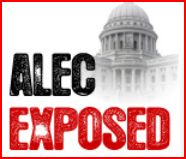
- State Policy Network member (and vice-versa)
- $858,858 from Koch foundations since 1997
- Ongoing funding from Koch Industries and numerous coal, oil & gas interests
- $45,000 grant from Donors Trust and Donors Capital Fund since 2010
- Koch lobbyist Mike Morgan sits on ALEC‘s corporate board
ALEC is leading the nationally-coordinated attack on state renewable portfolio standards as part of an ambitious dirty energy agenda for the members of its anti-environmental task force, like Koch Industries, ExxonMobil, Peabody Energy, Duke Energy and other major oil, gas and coal interests.
ALEC‘s “Electricity Freedom Act” is a full repeal of state laws requiring increasing electricity generation from clean sources, although in some states the model has morphed into a freeze of those targets rather than a full repeal. Kansas is one of those states. [*Correction: this post listed KS Sen. Julia Lynn as a supporter of the RPS freeze–she is not and her name was removed below.*]
The Senate Utilities committee sponsoring SB 82 has at least three ALEC members and the House Energy & Environment committee that introduced HB 2241 has at least three ALEC members:
- Senators Forrest Knox, Ty Masterson and Mike Petersen.*
- Representatives Phil Hermanson, Scott Schwab, and Larry Powell (a member of ALEC‘s anti-environmental task force that created the Electricity Freedom Act)
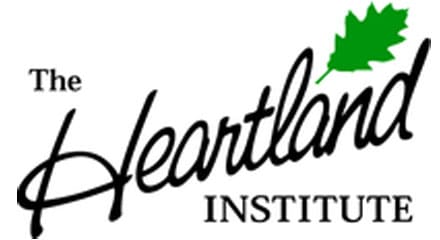
- State Policy Network member; ALEC anti-environmental task force member
- $55,000 from Koch foundations since 1997
- $14.5 million from Donors Trust since 2002
Heartland is based in Chicago and perhaps best known for its billboard comparing those who recognize climate change with the Unabomber (for which they lost over $1.4 million in corporate sponsorship along with the “mutiny” of their entire Insurance department, now the R Street Institute).
The Washington Post reports that ALEC‘s “Electricity Freedom Act” was created by the Heartland Institute. Heartland has long been a paying member of ALEC‘s Energy, Environment and Agriculture task force along with Koch, Exxon and others. Citing the flawed Beacon Hill reports, Heartland has encouraged a repeal of Kansas’ clean energy incentives on its website.
Heartland lawyer James Taylor testified before the Kansas legislature in February, opining that the growth of Kansas’ clean energy sector is “punishing the state’s economy and environment.” James Taylor was flown into Kansas City for an Americans for Prosperity Foundation event intended to undermine the Kansas RPS law. The AFP Foundation is chaired by David Koch.
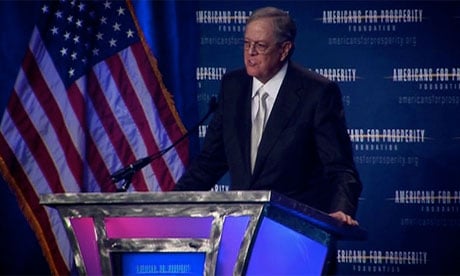
- State Policy Network member; ALEC anti-environmental task force member
- Chaired by David Koch, founded by Koch executives
- $5.7 million from Koch foundations since 1997
- $12.2 million from Donors Trust since 2002
Americans for Prosperity was created by the Kochs with help from Koch Industries executive Richard Fink after the demise of their previous organization, Citizens for a Sound Economy (CSE), which split into AFP and FreedomWorks in 2004.
In addition to hosting an event against the Kansas RPS law featuring Heartland’s James Taylor, AFP‘s Kansas director Derrick Sontag testified before the Kansas House committee on Energy and Environment. AFP‘s Sontag urged for a full repeal rather than a simple RPS target freeze:
“We believe that HB 2241 is a step in the right direction, but that it doesn’t go far enough. Instead, AFP supports a full repeal of the renewable energy mandate in Kansas.”
Derrick Sontag apparently only cited a range of debunked studies (the “Spanish” study and the flawed Beacon Hill report) and information from Koch-funded interests like the Institute for Energy Research and “State Budget Solutions,” a project of several State Policy Network groups including ALEC and the Mercatus Center, a think tank founded and heavily-funded by the Kochs.
Kansas Policy Institute
- $534,500 from Donors Trust and Donors Capital Fund, 2009-2011
- $340,000 in 2010–49% of 2010 budget
- $125,000 in 2011–20% of 2011 budget
- Member of ALEC
The Kansas Policy Institute (KPI) has been the central coordinating think tank within Kansas as outside interests have backed ALEC‘s attack clean energy laws. KPI co-published the debunked Beacon Hill Institute report that ALEC has used for its clean energy standard repeal in Kansas (see sources in Beacon Hill section above for debunking).
Kansas Policy Institute Vice President & Policy Director James Franko testified in the Kansas legislature alongside representatives of Heartland Institute, Americans for Prosperity and Beacon Hill Institute on Feb. 14 to weaken Kansas’s renewable portfolio standard.
Reasserting the false premise that clean energy standards substantially increase electricity prices, James Franko told the legislature’s Energy & Environment committee:
We have no objection to the production of renewable energy. […] Our objection is to government intervention that forces utility companies to purchase more expensive renewable energy and pass those costs on to consumers.
James Franko’s free market logic comes with the usual holes–no mention of the “costs” of coal and other polluting forms of energy that taint our air, water and bodies, nor any mention of how the government spends billions each year propping up the coal and oil industries.
After KPI‘s Franko testified before Kansas legislators on February 14, KPI hosted a luncheon for legislators at noon on the same day. The luncheon, hosted at the Topeka Capital Plaza Hotel, featured Beacon Hill’s Michael Head. From KPI‘s email invitation:
“Given the importance of this issue, we would like to invite you to join us for lunch on Thursday 14 February to hear from the author of a study we published last year exploring the costs and benefits of the Renewable Portfolio Standard (RPS). Not only will we be discussing KPI’s study but offering a review of different studies that have been presented to the Legislature.”
KPI has served as the glue for other State Policy Network affiliates entering Kansas to amplify the opposition to clean energy.
Chris Horner – Competitive Enterprise Institute & American Tradition Institute
- Competitive Enterprise Institute (CEI):
- $530,146 from Koch foundations since 1997
- $423,444 from Donors Trust since 2006
- Member of the State Policy Network
- American Tradition Institute (ATI):
- Member of the State Policy Network
- 75% of 2010 funding from oil businessman Doug Lair
Chris Horner is a senior fellow at CEI and the lead lawyer at ATI, a close CEI affiliate known for its litigious harassment of climate scientist Michael Mann alongside Virginia attorney General Ken Cuccinelli, who just worked with coal utility companies to kill Virginia’s renewable energy law. ATI was behind a leaked memo encouraging “subversion” among local groups opposed to wind energy projects.
Horner testified before the Kansas legislature on February 12 to encourage the false notion that the renewable energy portfolio standard is going to make consumer electricity bills skyrocket (again, there is no correlation between state RPS laws and electricity prices). He cited the long-debunked “Spanish” study, which Koch front groups have cited for years in attempts to undermine clean energy.
Chris Horner is affiliated with several other Koch- and Exxon-funded State Policy Network affiliates such as the National Center for Policy Analysis and Tech Central Station (set up by DCI Group).
Grover Norquist and Americans for Tax Reform: 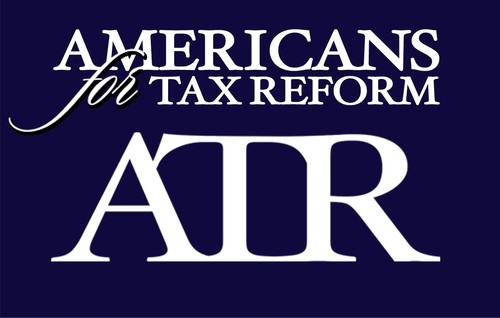
- $60,000 from Koch foundations since 1997
- $172,100 from Donors Trust since 2004
- Member of the State Policy Network
ATR president Grover Norquist wrote a Feb. 27, 2013 letter supporting the Rep. Dennis Hedke’s House bill shortly before the bill was kicked back into the House Utilities commission. This Kansas letter followed an ATR op-ed in Politico encouraging rollbacks of state clean energy incentives, claiming they are a “tax,” which is Norquist’s consistent tactic against anything the financiers of ATR don’t feel like supporting.
Junk climate scientists with Koch and Exxon ties:
Disgraced scientists Willie Soon and John Christy were flown in by Americans for Prosperity to assure state legislators that global warming isn’t a problem (it’s already a $1.2 trillion problem annually). Doctor’s Soon and Christy themselves directly funded by Koch or directly affiliated with several Koch-funded interests like the Competitive Enterprise Institute and Heartland.
Willie Soon in particular has a habit of conducting climate “research” on the exclusive dime of coal and oil interests over the last decade: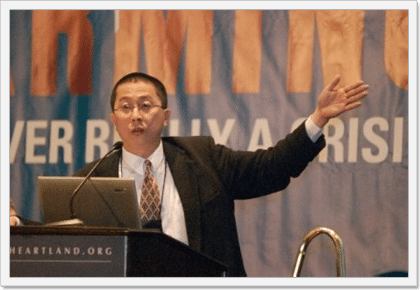
- ExxonMobil ($335,106)
- American Petroleum Institute ($273,611 since 2001)
- Charles G. Koch Foundation ($230,000)
- Southern Company ($240,000)
Dr. Soon’s questionable climate research now receives funding through the Donors Trust network–$115,000 in 2011 and 2012.
See Skeptical Science’s profile of John Christy for a through explanation of why he is not a credible voice in the scientific community studying climate change, using peer-reviewed climate research as refutation.
State Policy Network
- Umbrella organization to all groups listed above
- $49,000 from Koch foundations since 1997
- Over $10 million from Donors Trust & Donors Capital Fund since 2002
- Donors Trust provided over 36% of SPN‘s 2010 budget and over 40% of SPN‘s 2011 budget (budgets for both years listed in their 2011 IRS filing).
KOCH INDUSTRIES
- Based in Wichita, Kansas
- Operations in oil refining, oil and gas pipelines, fossil fuel commodity & derivatives trading, petrochemical manufacturing, fertilizers, textiles, wood and paper products, consumer tissue products, cattle ranching, and other ventures.
- $115 billion in estimated annual revenue
- 84% private owned between brothers Charles Koch and David Koch, each worth an estimated $34 billion (Forbes) to $44.7 billion (Bloomberg).
- Member of ALEC‘s anti-environmental task force
- Associated foundations fund State Policy Network, ALEC, Heartland Institute, Americans for Prosperity, Beacon Hill Institute, Competitive Enterprise Institute, Americans for Tax Reform and Dr. Willie Soon.
- Koch brothers founded Americans for Prosperity and helped establish the Heartland Institute.
The money trail of the out-of-state groups inundating Kansas with their sudden interest in killing the state’s incentives for wind energy leads back to the Koch brothers. While Koch Industries has deployed its own lobbyists to compliment the effort, the brothers who lead the company have tapped into their broader national network to aid the fight against clean energy in Kansas.
Charles and David Koch, the billionaire brothers who own Koch Industries, have spent over $67,000,000 from their family foundations on groups who have denied the existence or extent of global climate change, promote fossil fuel use and block policies that promote clean energy development.
The Kochs obscure millions more in annual giving through Donors Trust and Donors Capital Fund, which collect money from the Kochs and other wealthy corporate interests and pass it on to State Policy Network groups. This video provides a visual overview of how the Koch-funded network amplifies unscientific doubt over climate science and blocks clean energy policies:
Image credit: Tom Corser via WikiCommons. Licensed under Creative Commons Attribution ShareAlike 2.0 England & Wales (UK)
Subscribe to our newsletter
Stay up to date with DeSmog news and alerts


